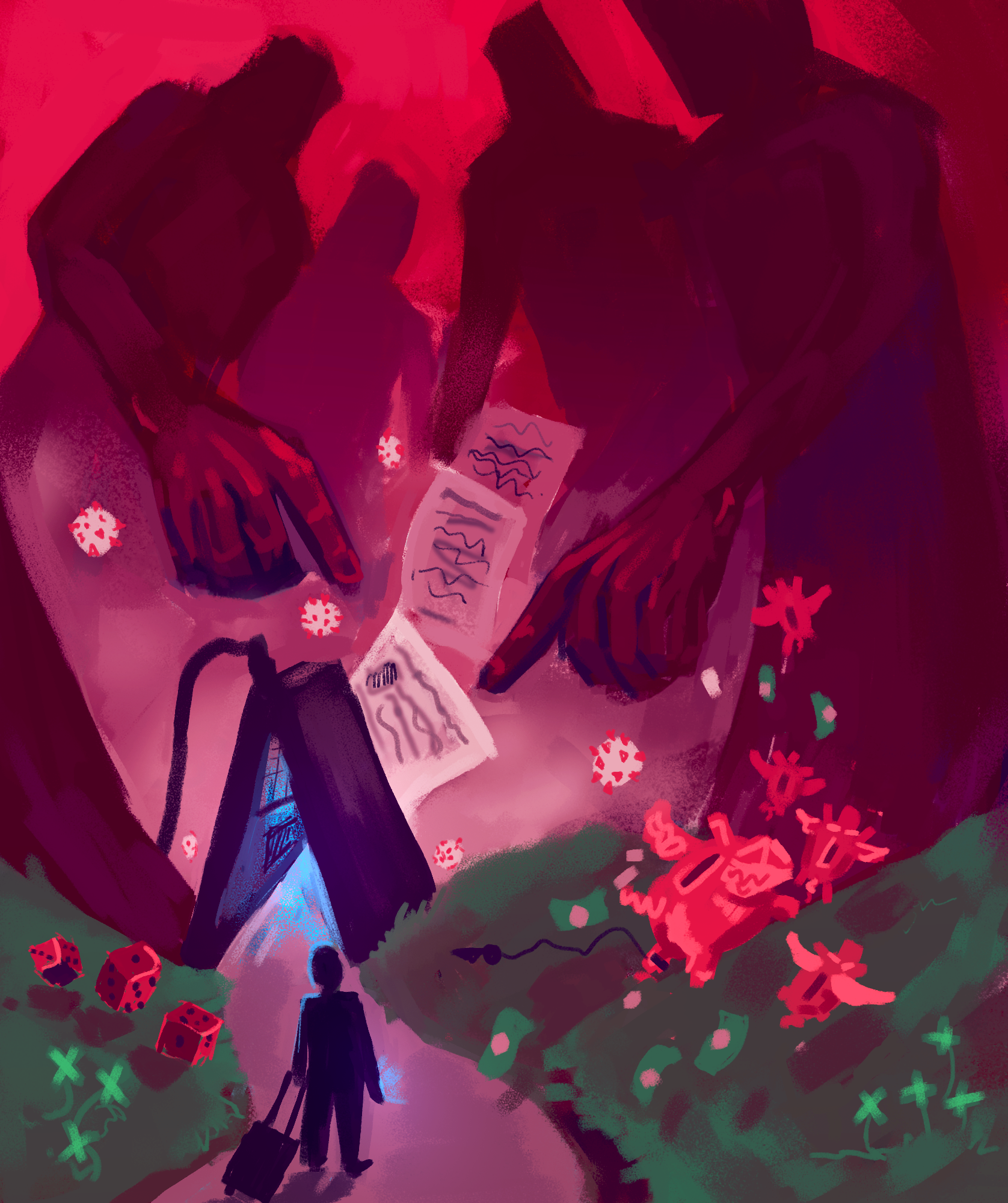Restrictions in January

Restrictions in January: 8 out of 10 students saw changes to their January block
Saturday night, January 2nd, the government suddenly encouraged students to delay their return to campus. Tuntreet did a survey on how this affected students at NMBU. There were 223 responses to the survey.
Journalist: Guro Størdal
Translator: Aleksander Mæland Munkejord
Illustrator: Oda Braar Wæge
Changes to Many Courses
Sunday, January 3rd, we were told that all teaching would be held digitally. This sudden change led to people with course responsibility having to quickly adjust their courses. If we leave out those who had no January block (23.3% of the responses), only 19.2% had no changes to their course. 7% had their course cancelled, and the remaining 73.7% had a more digitalized course than planned. So, about 8 out of 10 students who had courses in the January block had their course altered.
Figure 1: Which faculty do you belong to? 223 replies
Figure 2: Which year are you? 223 replies
Figure 3: Were there changes in your january block? 171 replies
Cancelled Courses
Later came the message that all teaching that could be digital should be held digitally. This came after several courses were already cancelled or altered. Among those who had their courses cancelled (12 respondents), 50 % were from REALTEK, 33.3% were from BIOVIT, and the remaining two were from LANDSAM and KBM. They were all on their 3rd, 4th or 5th year. We still do not know what will happen to all the cancelled courses, but some of them have been moved to the spring parallel.
The Travel to Ås
That the message from the government regarding travels was given a little too late is evident from a whole 32.4% responding that they were already in Ås. 35.6% in total went regardless, but 8.6% changed their means of transport. 18.9% cancelled their return. The remaining 13.1% weren’t going to Ås in the first place. In total, almost 2/3 of students ended up in Ås by the end of January.
Taking a closer look at those who cancelled their travel, 9.5% (4/42) had their course cancelled. 78.6% (33/42) had a more digitalized course. 4.7% (2/42) had no changes, and the remaining 7.1% (3/42) had no January block.
Figure 4: Was your journey to Ås affected by the restrictions? 222 replies
Figure 5: Changes in the january block for cancelled travelers. 42 replies
The Economy
The majority were not impacted economically by the changes. 2.7% (6/220) said they went because they could not afford a new ticket. In total, 10.5% suffered financial losses. Among these, 30.4% (7/23) had their losses covered by someone else, while 69.6% (16/23) had to pay for themselves. 56.5% (13/23) cancelled their trip, 30.4% (7/23) went with another transport, and the remaining travelled as planned or were already in Ås.
Figure 6: Have you suffered from economic losses as a consequence of these restrictions? 220 replies
Figure 7: Travel situation for those with economic loss. 23 replies
These are just numbers
We cannot draw any conclusions from these numbers. Nonetheless, they are interesting to consider. It shows that a lot was changed in a very short period of time. For about a third the message came too late, seeing as they were already in Ås. About 10% of the respondents suffered financial losses. They may not be many, but there were still people who were affected by the late message.








